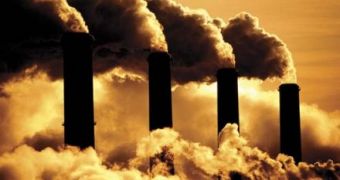The very young carbon market is currently in a constant state of expansion, following more and more members entering the agreement, which regulates the amounts of carbon each of the signing parties can emit in the atmosphere over a year. Statistics show that the carbon trading business went up from $67 billion in January to $84 billion in September, and the London-based company New Energy Finance predicts that the money involved in this type of trading will exceed $100 billion by the end of the year.
The Chicago Climate Exchange is the main place for trading carbon stocks. It was opened in 2003 by economist Richard Sandor and now features some 350 members, including companies from various fields of activity. All the participants in the exchange took a vow to reduce their overall carbon emissions to the levels recorded in 2000. Though this seemed like an ambitious objective, the exchange members managed to offset 11 percent of output carbon, instead of the predicted 4 percent.
Trading carbon actually works simply. You have two companies that both want to reduce the levels of their emissions, but only one has the money to invest in the infrastructure needed. If the first succeeds and reduces more than planned and the other doesn't, then that company can sell a “carbon credit” to the second, for money. This enables the former to further invest in reduction, while also allowing the latter to reach its designated carbon reduction limit.
This type of commerce has boomed over the recent five years, with corporations worldwide now selling carbon credits amounting to 100 metric tones per CFI (CCX Carbon Financial Instrument). The CFI is the basic measuring unit in the Chicago Climate Exchange. The main advantage of this trading system is that it sustains and promotes the exceeding of imposed limits in that companies which achieve that can sell their exceeded amounts for further profits.
"Future prices are likely very dependent on the next administration and where it stands on the climate change issue. If the country is going to implement a cap-and-trade system, similar to what's happened in Europe, then the price of the credits could increase," said CNX Gas spokesperson Laural Ziemba.

 14 DAY TRIAL //
14 DAY TRIAL //